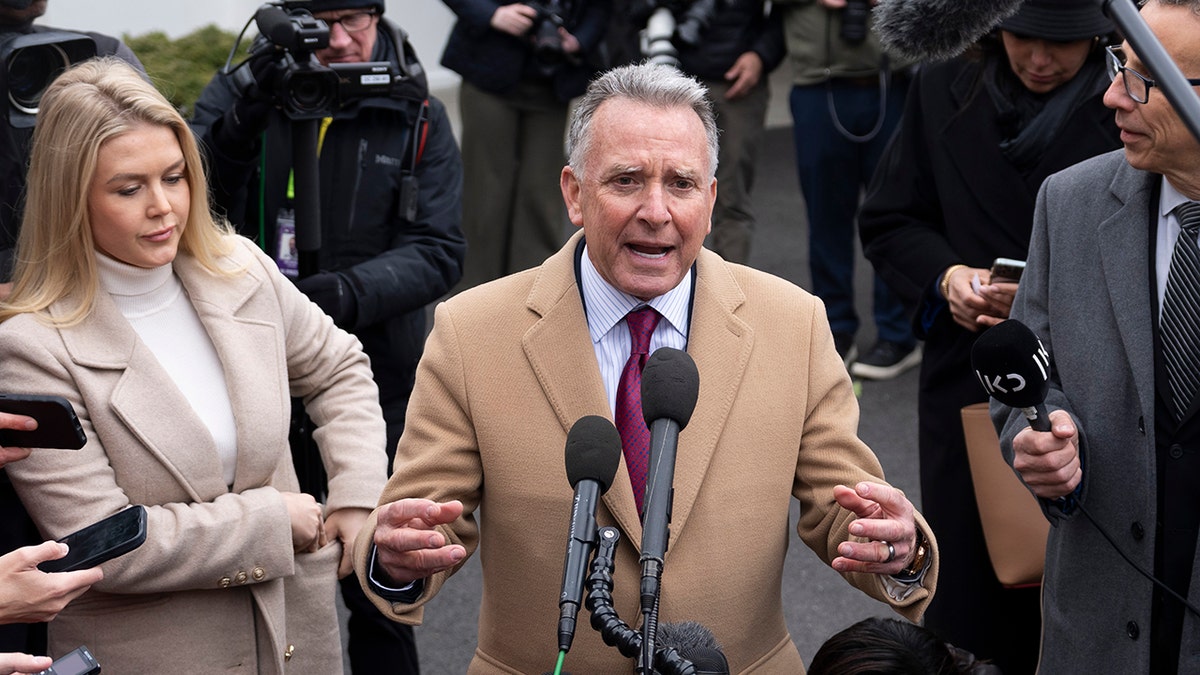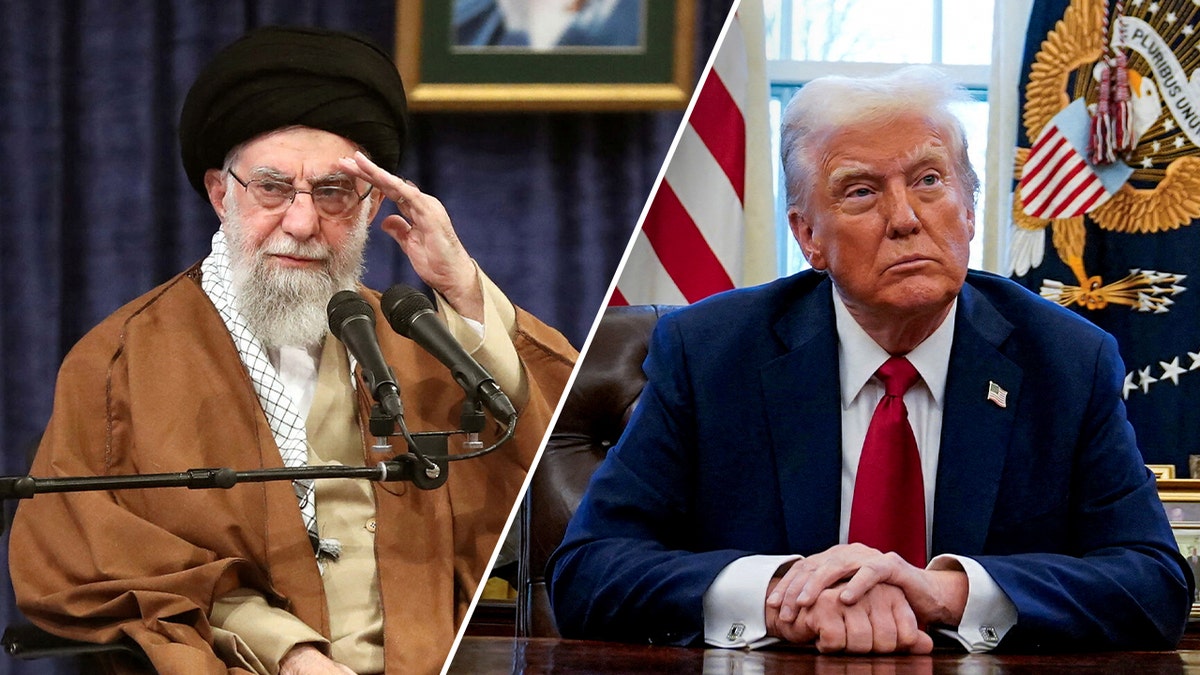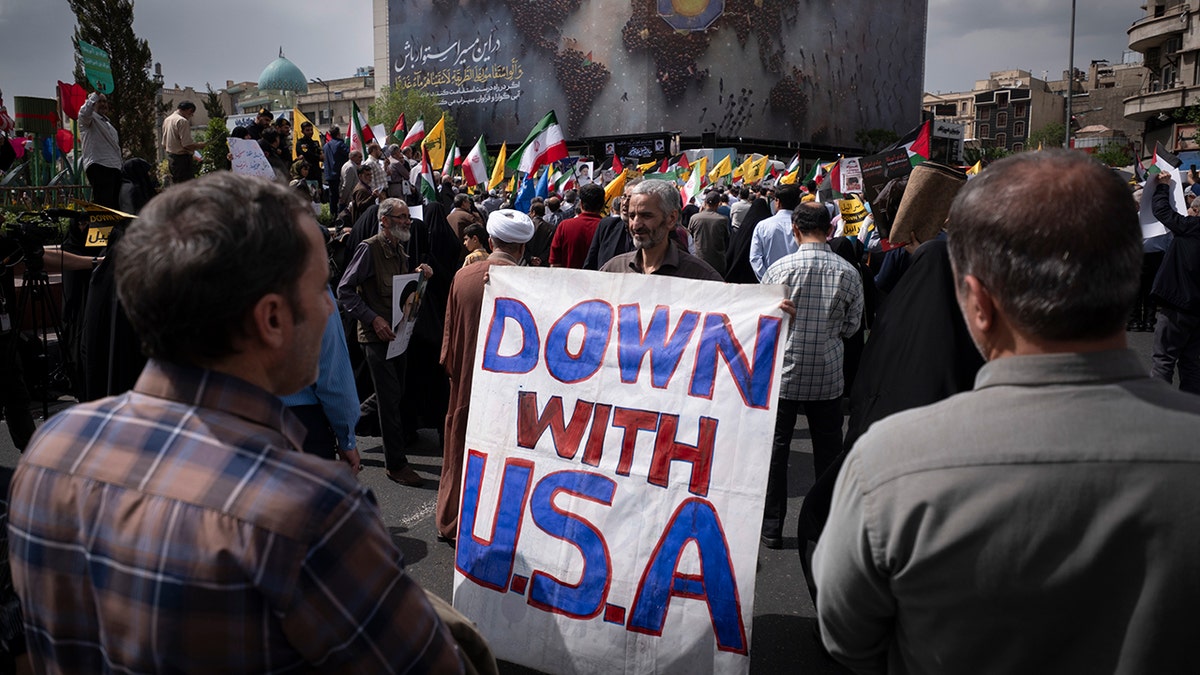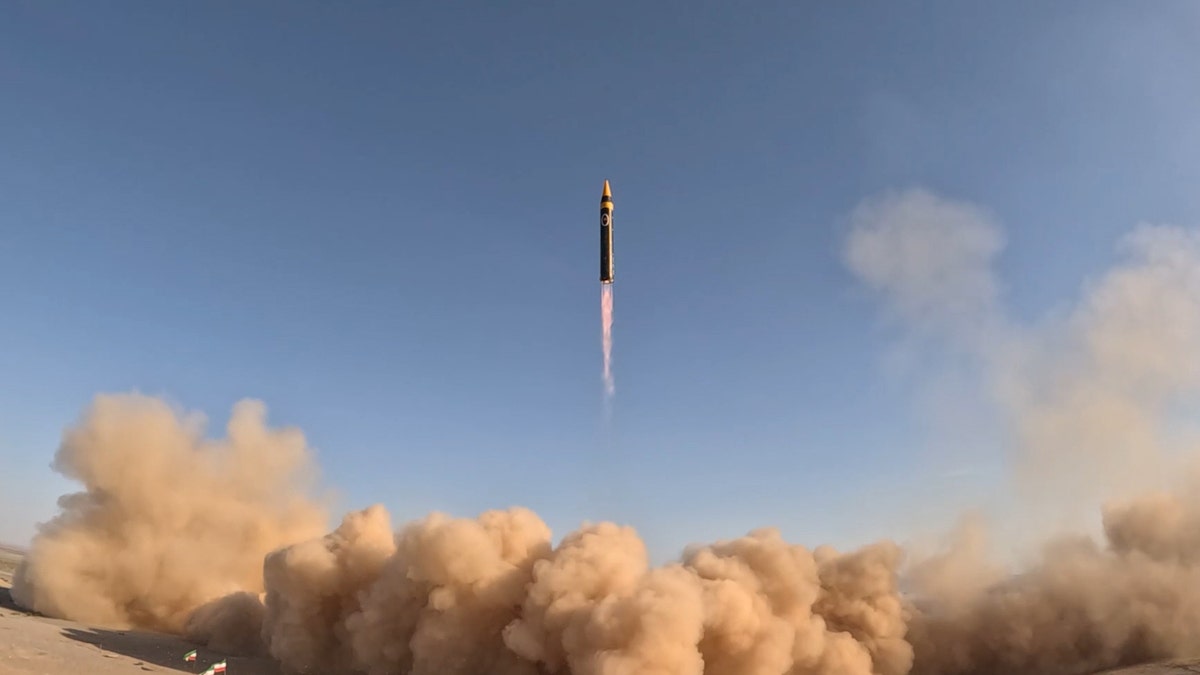

American and Iranian officials sat down for a first round of direct talks Saturday in Oman, a major step after years of rising tensions and stalled diplomacy that will continue with further discussions next weekend, according to a statement released by the White House.
The meeting between U.S. Special Envoy Steven Witkoff and Iranian Foreign Minister Abbas Araghchi was the first face-to-face exchange since President Donald Trump returned to office as Iran continues to expand its nuclear program.
The White House described the discussions as "very positive and constructive," adding, "the United States deeply thanks the Sultanate of Oman for its support of this initiative."
Witkoff, joined by U.S. Ambassador to Oman Ana Escrogima, told Araghchi Trump had personally instructed him to try to resolve differences through diplomacy, if possible.
DELEGATES FROM IRAN, US HOLDING TALKS IN OMAN AMID ONGOING TENSIONS: WHAT TO KNOW

Steve Witkoff, White House special envoy for the Middle East, met with Iranian officials Saturday. (AP/Ben Curtis)
The talks took place on the outskirts of Oman’s capital, Muscat, and lasted just over two hours. Omani Foreign Minister Said Badr hosted the meeting.
Iranian state TV later confirmed the sides exchanged several rounds of messages, and there was a short, direct conversation between the American and Iranian diplomats.
Military pressure appears to be a big reason Iran came to the table. Rebecca Grant, a senior fellow at the Lexington Institute, told the "Fox Report" Saturday the U.S. has sent a clear signal by moving powerful military assets into the region.
TRUMP DEMANDS DO-OR-DIE NUCLEAR TALKS WITH IRAN. WHO HAS THE LEVERAGE?
"All the options are not only on the table. They're all deployed to the Middle East," Grant said. "Somewhere between four and six B-2 stealth bombers [are] forward in Diego Garcia, [along with] two aircraft carriers. That has really gotten Iran’s attention."
Grant said Iran now faces a choice.
"Iran either has to talk or get their nuclear facilities bombed," she said.
Tensions between the two countries have been high since 2018, when Trump pulled the U.S. out of the 2015 nuclear deal.

Iran's Supreme Leader Ayatollah Ali Khamenei and President Donald Trump (Office of the Iranian Supreme Leader/WANA; Reuters/Elizabeth Frantz/File Photo)
That agreement placed strict limits on Iran’s nuclear program. Since then, Iran has been enriching uranium at much higher levels. The latest report from the International Atomic Energy Agency (IAEA) says Iran is enriching uranium to 60% purity, just below weapons-grade, and has stockpiled over 18,000 pounds of it. Under the original deal, Iran was limited to 3.67% purity and a much smaller stockpile.
While U.S. intelligence agencies do not believe Iran has started building a nuclear weapon, they warn the country is getting closer to being able to do so if it decides to.
Gen. Jack Keane, a Fox News military analyst, said Iran’s leaders now believe Trump is serious about using military force if they don’t agree to limit Iran's nuclear program.
"They’ve come to the conclusion that the president is dead serious about supporting an Israeli-led, U.S.-supported strike on Iran to take down their nuclear enterprise," Keane said.

An Iranian man holds an anti-U.S. poster during a rally in downtown Tehran. (Morteza Nikoubazl/NurPhoto via Getty Images)
Grant explained that the U.S. and its allies are ready for such a strike if talks fail.
"Israel took out a lot of Iran’s air defenses last year," she said. "Then you have two [U.S.] carriers, land-based fighters in the region and B-2 bombers with bunker-busting bombs. That’s the threat display."
She added that Iran has no real need to enrich uranium since it can buy nuclear fuel on the open market.
"It is time for them to start to make a deal," she said. "And I think, maybe, due to our military pressure and Trump’s resolve, they’re beginning to realize it."
Iran’s president, Masoud Pezeshkian, has said he’s not open to direct negotiations on the nuclear program but has also blamed the United States for breaking past promises.
"They must prove that they can build trust," Pezeshkian said in a recent Cabinet meeting.
Iranian Foreign Ministry spokesperson Esmail Baghaei warned of consequences if threats continue.
"Violence breeds violence, peace begets peace," he wrote on social media. "The US can choose the course... and concede to consequences."

Iran launches a medium-range ballistic missile called Hayber (Hurremshahr-4) May 7, 2023. (Iranian Defense Ministry/Hanodut/Anadolu Agency via Getty Images)
Former Secretary of State Mike Pompeo told Fox News no deal can happen unless Iran gives up its nuclear weapons plans.
"We have to fully, verifiably eliminate their nuclear weapons program for there to be any agreement," he said. "All we ask is that they behave like a normal nation."
Grant said any future deal will need strict terms.
"It’s going to have to include real inspections," she said. "It’s going to have to include them giving up, frankly, some of that enriched uranium. There will have to be some limits on their ballistic missile development."
The two nations are scheduled to meet again April 19 in Oman, according to the White House statement.
Fox News Digital's Bradford Betz and The Associated Press contributed to this report.
